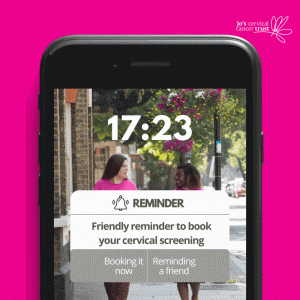COVID 19
“Please do not come to the surgery if you have any symptoms of coronavirus. These include a high temperature or a new, continuous cough or a loss or change to your sense of smell or taste.
“If you have these symptoms, please book a free test by visiting the government website or calling 119 and self-isolate with members of your household until you get the results.
“If you test positive you must self-isolate for 10 days from when your symptoms started and those you live with must self-isolate for 14 days, but they don’t need to get tested unless they develop symptoms too.
“If other members of your household develop symptoms too, they should get tested and if the result is positive they must self-isolate for 10 days from when their symptoms started, which might mean they self-isolate for longer than 14 days overall.”
Travel Vaccine Status (Covid-19)
From 17 May 2021, people in England who have been fully vaccinated against COVID-19 can demonstrate their vaccination status for international travel. A full course is currently two doses of any approved vaccine. Vaccine status will be available from:
It may take more than a week for your identity to be checked and verified so you can use these services.
If you cannot access these online services, and you have had 2 vaccines, you can request a paper letter from the NHS by calling 119. Only call 119 if you had your second dose more than 5 working days ago. It may take 7 working days for the letter to arrive.
This practice is not able to provide you with a letter that shows your COVID-19 vaccination status.
When you’re planning your travel, check the latest information on demonstrating your COVID-19 status when travelling abroad on the gov.uk website. Make sure there is time to get proof of your vaccination status before you leave.
NHS COVID-19 vaccination programme update
Exeter and East Devon and Mid Devon
Some GP sites in Exeter will not be providing vaccinations for their patients aged 18-49, but
people in the city can use the National Booking Service to book an appointment at locations including at the nearby large vaccination centre at Greendale Business Park or Lewis Pharmacy in Exmouth.
Anyone who has an appointment for a first or second dose of Covid vaccine at the large vaccination centre at Westpoint Exeter should go to the new site at the Greendale
Business Park if their appointment is 7 May 2021 or after.
As previously announced, the site of the large vaccination centre is moving from Westpoint
to its new home at Greendale Business Park, as Westpoint starts to return to its commercial
events calendar following the easing of lockdown restrictions.
Greendale is just over two miles from the existing site, and clear signage will be in place to
guide patients from Westpoint.
Our GP-led local vaccination service is providing vaccinations to people in cohorts 1-9 and this will continue.
We will not be providing a vaccination service for people aged 18 to 49 when they become eligible. If you are in this cohort, you will be able to get your vaccination at other local vaccination services including hospital hubs, community pharmacies and larger vaccination centres.
Please click here for more information on Covid-19 Vaccine
Up to date information on the vaccine locally
Click here
Useful Information
Symptoms of COVID 19- The common symptoms of COVID 19 are a persistent new cough and/or temperature, and/or a change or loss of sense of smell or taste. Some people develop shortness of breath or a sore throat. Please contact 111online if you have COVID 19
Find out about the main symptoms of coronavirus and where to get medical advice if you think you have them.
Check if you have coronavirus symptoms
Advice about not leaving your home (self-isolation) and looking after yourself if you or someone you live with has symptoms.
What to do if you or someone you live with has symptoms of coronavirus
Advice for people at higher risk from coronavirus, including older people, people with health conditions and pregnant women.
People at higher risk from coronavirus
Advice about symptoms of coronavirus in children, including when to get medical help if your child seems unwell.
Coronavirus in children
Advice about staying at home to avoid getting coronavirus, including when you can leave your home and how to get medical help.
Staying at home to avoid getting coronavirus
Find out what you can do to help the NHS respond to the spread of coronavirus.
Help the NHS respond to coronavirus
Links to government advice, information for health professionals and advice for other parts of the UK.
Links to more information about coronavirus
For further information go to nhs.uk/coronavirus or gov.uk/coronavirus
The current guidance for protecting extremely clinically vulnerable groups
Click Here
THANK YOU
On behalf of us all at St Thomas Medical Group we would like to acknowledge your patience and understanding during these challenging times.
Our team are carrying on our service but as per government guidelines trying whenever possible to communicate with you over the phone rather than face to face for everybody’s safety.
We are also highlighting our Online Consultation service so patients can contact us through a form on our website and we will reply within 72 hours.
Thank you again for your cooperation and understanding. Keep washing hands, keep wearing masks and most of all keep smiling!
With best wishes all of us from St Thomas Medical Group
